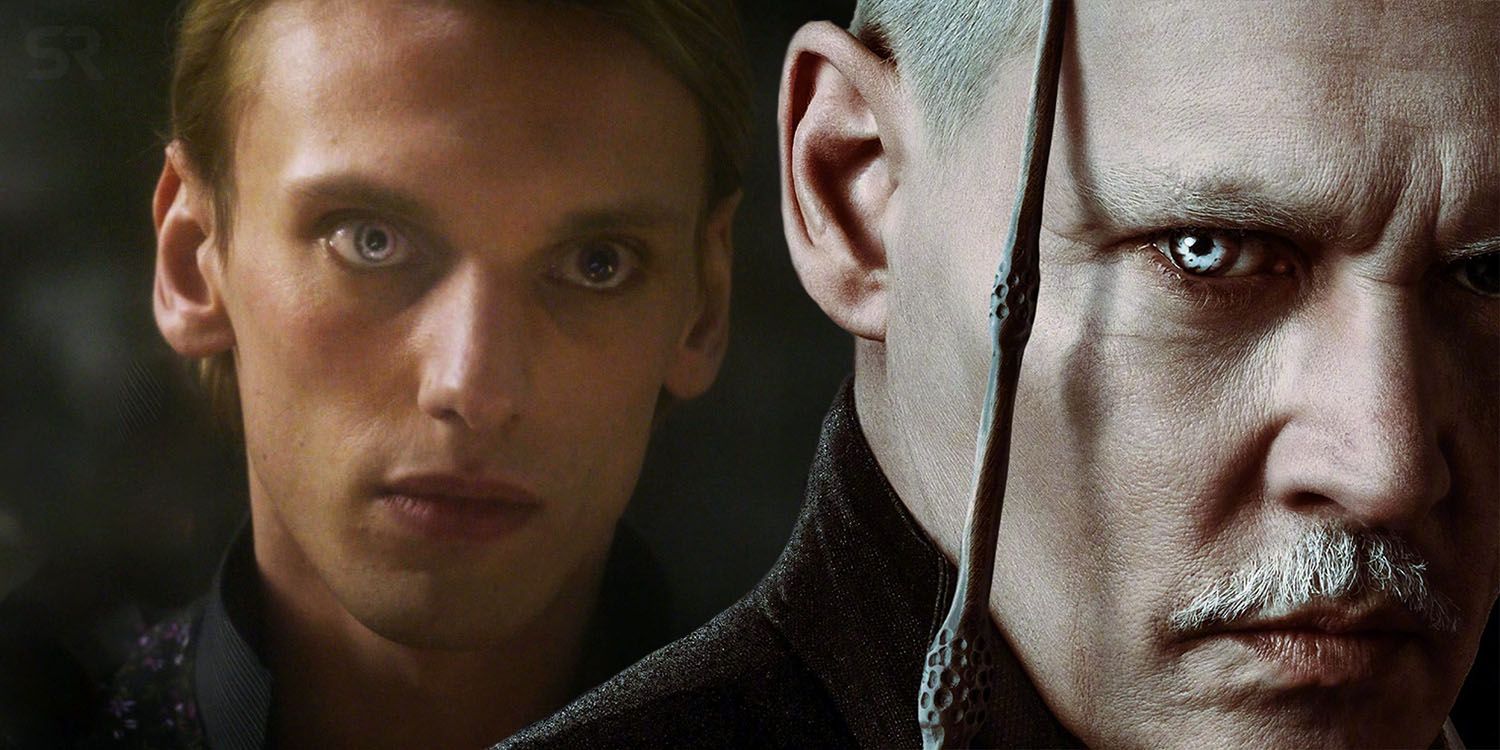
Potterheads everywhere might have been sad when Harry, Hermione and Ron’s adventures came to an end with Harry Potter and the Deathly Hallows, but they didn’t need to mourn for too long. Not only has J.K. Rowling launched Pottermore and released several tie-in books, but Warner Bros. and Heyday Films released the movie Fantastic Beasts and Where to Find Them, inspired by the book of the same name.
The story primarily follows magizoologist and proud Hufflepuff Newt Scamander as he tries to find the magical creatures escaped from his suitcase, and getting roped into a bigger plot. As with many franchise prequels, though, Fantastic Beasts is full of tie-ins and references to the original Harry Potter movies and books. Apart from expanding the Wizarding World to North America, the movie also gives us a glimpse at one of the most powerful Dark Wizards ever known, Gellert Grindelwald. He doesn’t play an active role in the original series, but Grindelwald's actions continue to influence Harry’s life as well as the fate of the Wizarding World at large. With The Crimes of Grindelwald upon us, it’s worth revisiting the actions that changed the Wizarding World forever.
The list below contains spoilers for the original books and movies as well as the new Fantastic Beasts series. If you don’t mind spoilers, it’s a good way to learn about Grindelwald’s background if you’re new to the Wizarding World and need a quick primer.
Here are 20 Most Wicked Things Grindelwald Did Before Fantastic Beasts.
20 He Went To Durmstrang

We’re not trying to say that attending Durmstrang Institute is a one-way ticket to the Dark Arts, but gven the history of the wizarding school, being a student there is a pretty notable detail in Grindelwald’s life.
Durmstrang is a wizarding school somewhere in the far north of Europe, famous for its tolerance of and even emphasis on the Dark Arts. The institution made its first appearance in The Goblet of Fire as one of the schools participating in the Triwizard Tournament. It’s also known for turning away Muggle-born witches and wizards. It’s not actually an all-boys school, as depicted in the movie adaptation. Plenty of students—like Viktor Krum—turn out fine, but Grindelwald was not one of them.
19 He Was Expelled
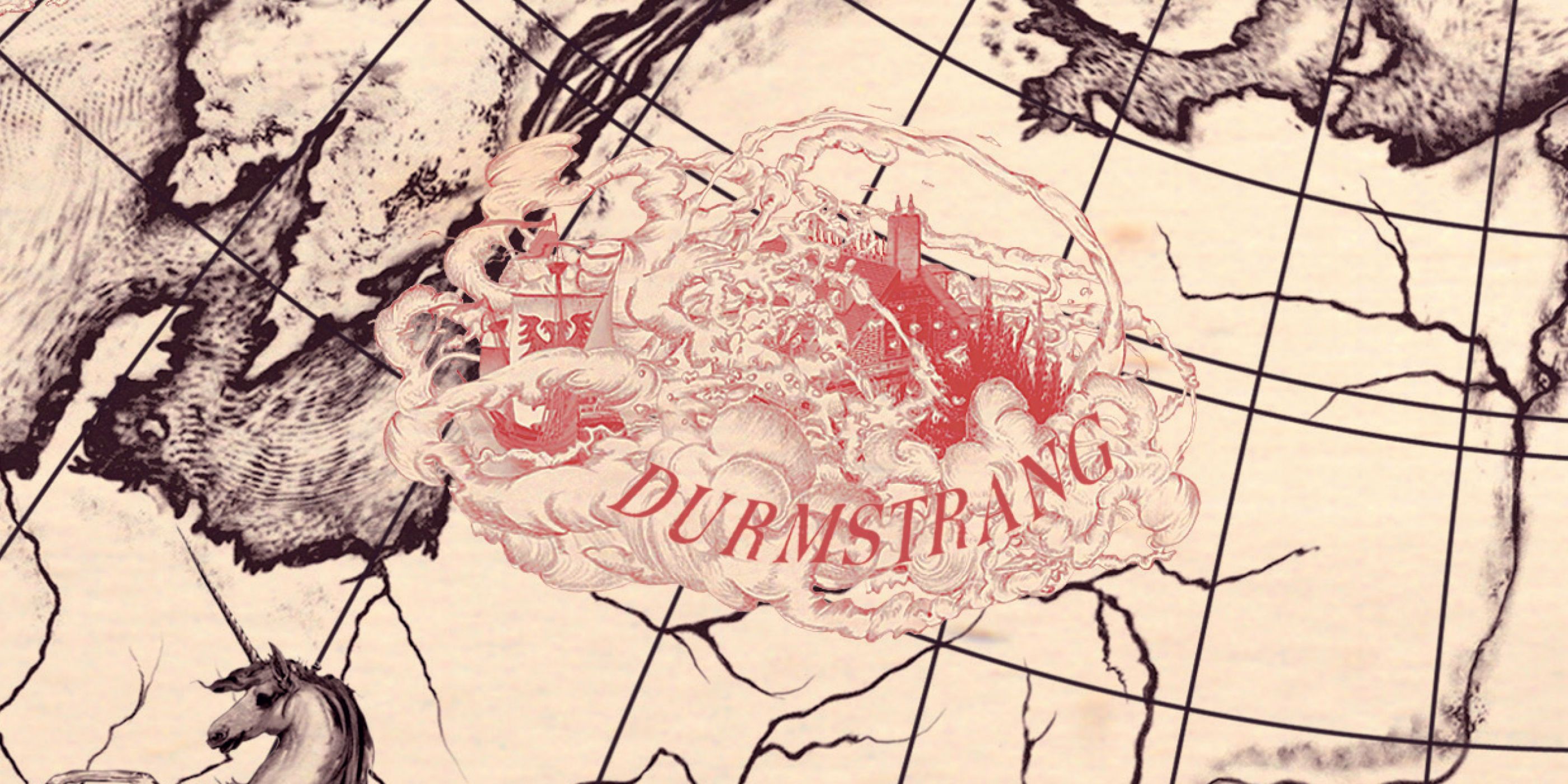
Not only was Grindelwald a student at Durmstrang, he was actually expelled for “twisted experiments” and “near-fatal attacks on his fellow students” when he was just 16 years old. There are no details about his experiments and violent incidents to be found, but if someone gets kicked out of Durmstrang, you know it had to be really bad.
His profile on Pottermore even straight-up lists his hobbies as simply “Dark Arts.” Durmstrang has had periods of questionable leadership under headmasters Harfang Munter and Igor Karkaroff. Some parents even took their kids out of Durmstrang when Karkaroff was in charge. However, it’s Grindelwald’s association with the school has done the most harm to its reputation by far.
18 He Used The Deathly Hallows As His Personal Emblem
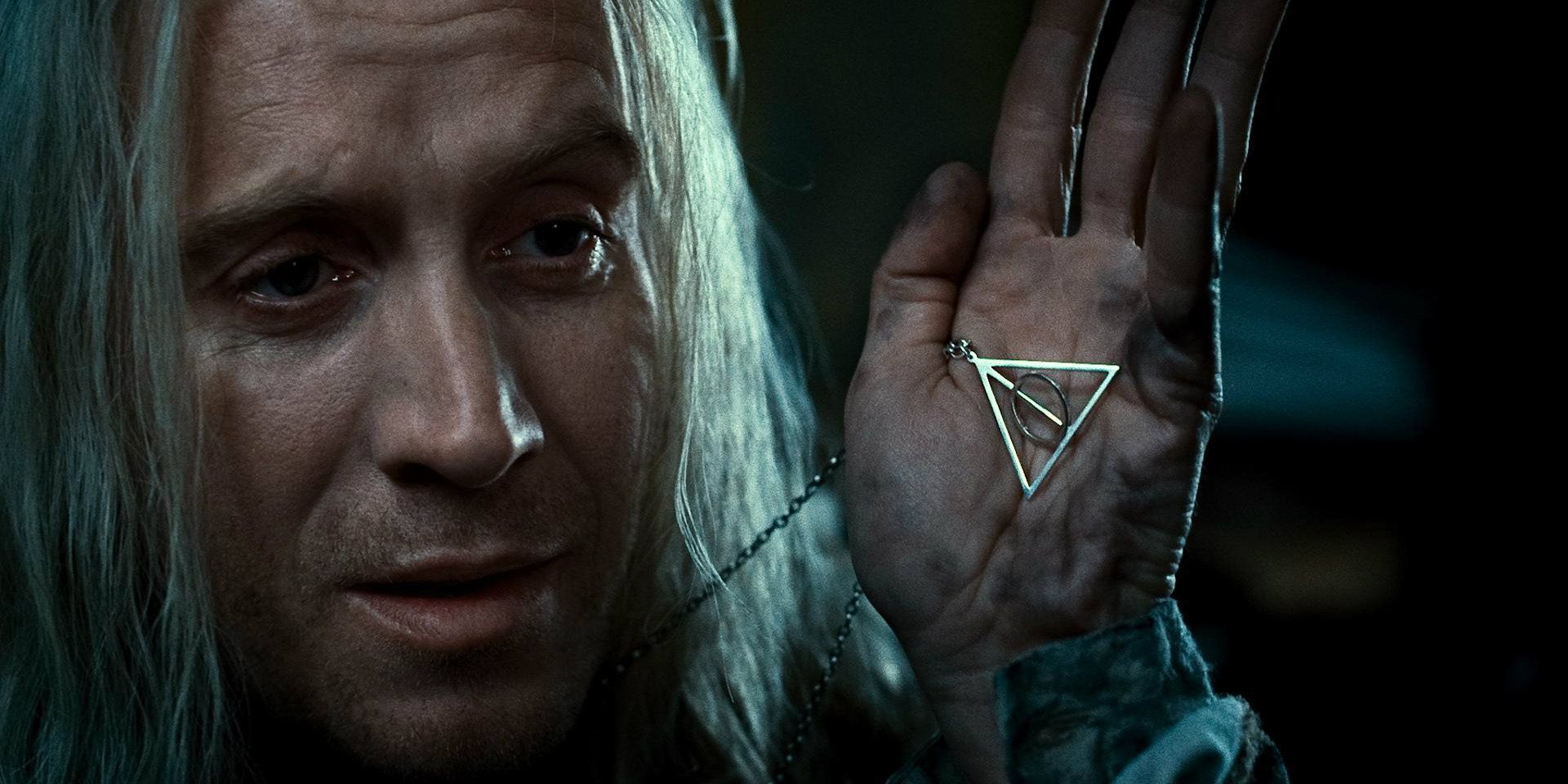
As a student, Grindelwald was obsessed with the Deathly Hallows, and even adopted the triangular sign as his personal symbol. It was initially a representation of the three Hallows: The Elder Wand, the Resurrection Stone and the Cloak of Invisibility. However, it became so strongly associated with the infamous Dark Wizard that Viktor Krum wanted to duel Xenophilius Lovegood at Bill and Fleur’s wedding because the older man was wearing a necklace with the symbol.
According to Krum, Grindelwald had carved the symbol into a wall at Durmstrang, and several students emulated him in attempts to seem more impressive. However, Krum and other students who’d lost family member to Grindelwald would set these students straight.
17 He Moved To Godric's Hollow
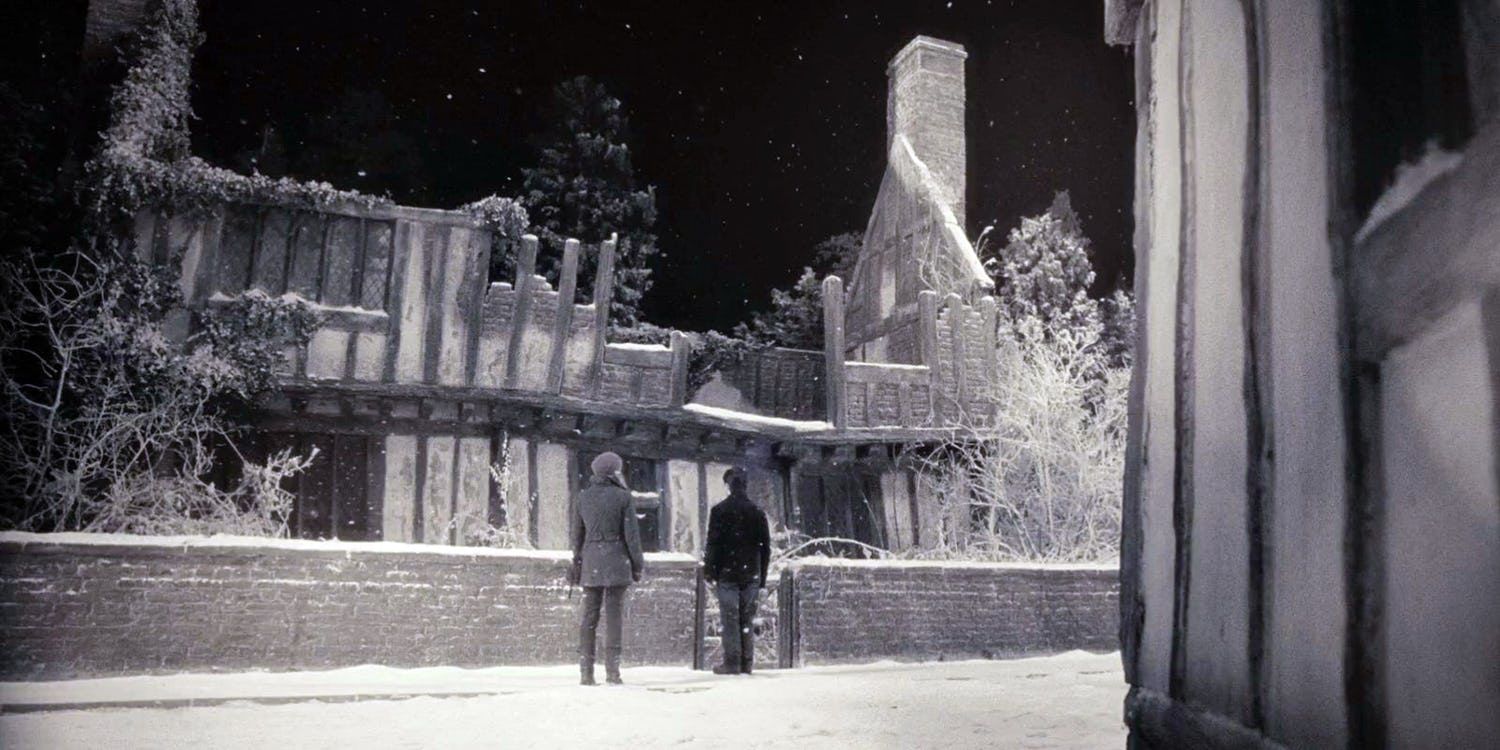
Shortly after getting expelled from Durmstrang at 16, Grindelwald decided to move to Godric’s Hollow to continue his pursuit of the Deathly Hallows. Godric’s Hollow was known as the final resting place of Ignotus Peverell, the original owner of the Invisibility Cloak. Plus, Grindelwald’s great-aunt Bathilda Bagshot—author of A History of Magic—lived there, and provided him with a place to stay.
Since Bagshot was such a lauded historian, she had a wealth of documents and resources for Grindelwald to study, and provided very little supervision as he grew stronger and smarter. Godric’s Hollow was also the location of Grindelwald and Dumbledore’s fateful meeting, which sparked a bond that would change the Wizarding World forever.
16 He Looked For The Deathly Hallows With Albus Dumbledore
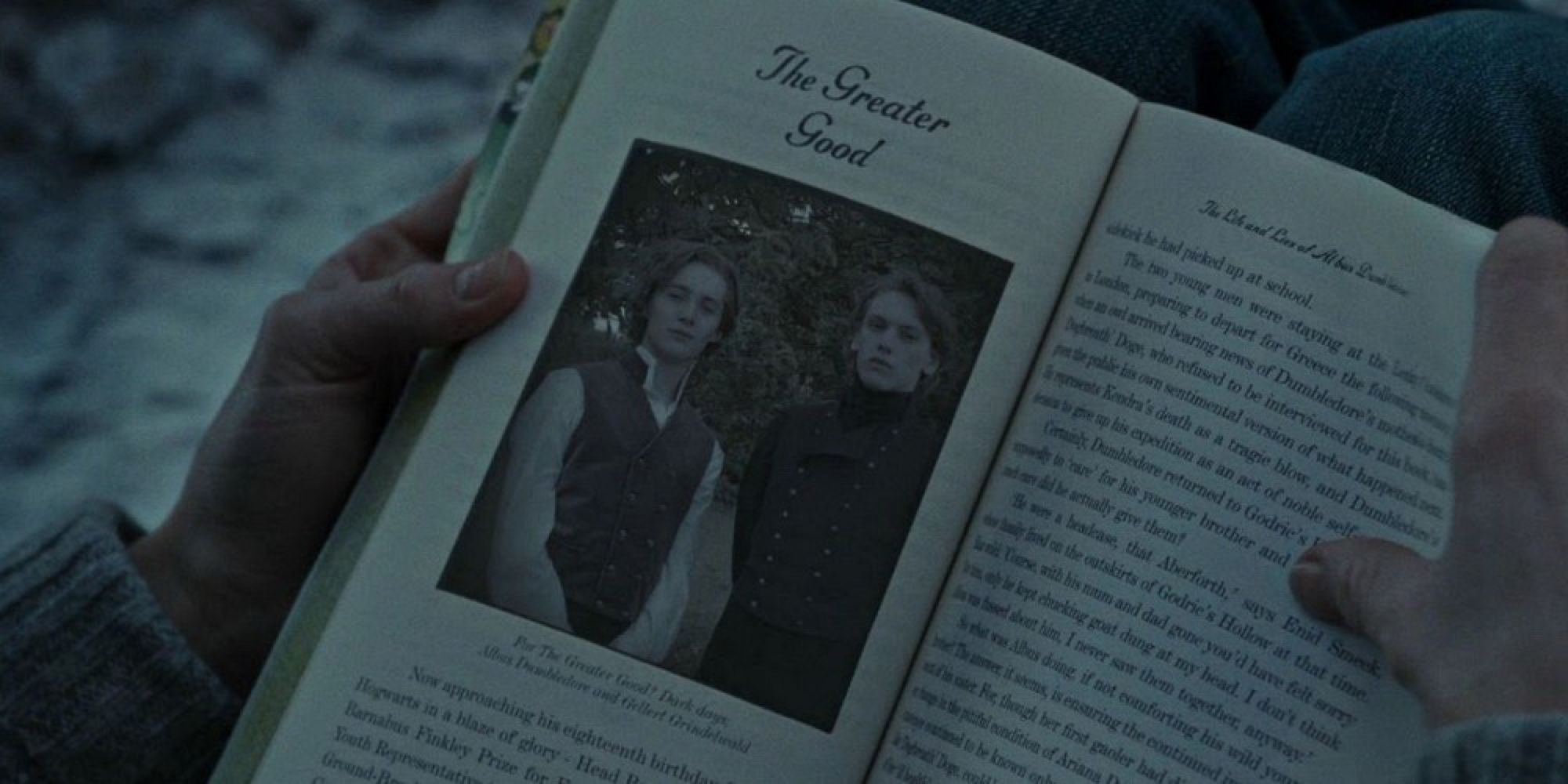
Once he relocated to Godric’s Hollow, Grindelwald quickly became friends with young Albus Dumbledore. The two teens were both fascinated with the Deathly Hallows and tried to find all three Hallows in order to become the Master of Death, operating under the assumption that they’d become immortal and invincible.
While one might think that they simply formed a partnership out of convenience, but the friendship might’ve been genuine. As Rowling revealed, Dumbledore fell in love with Grindelwald. David Yates, the director of the Fantastic Beasts sequel, takes the sentiment even farther and says that the pair fell in love with each other.
15 He Wanted To Overturn The International Statute Of Secrecy
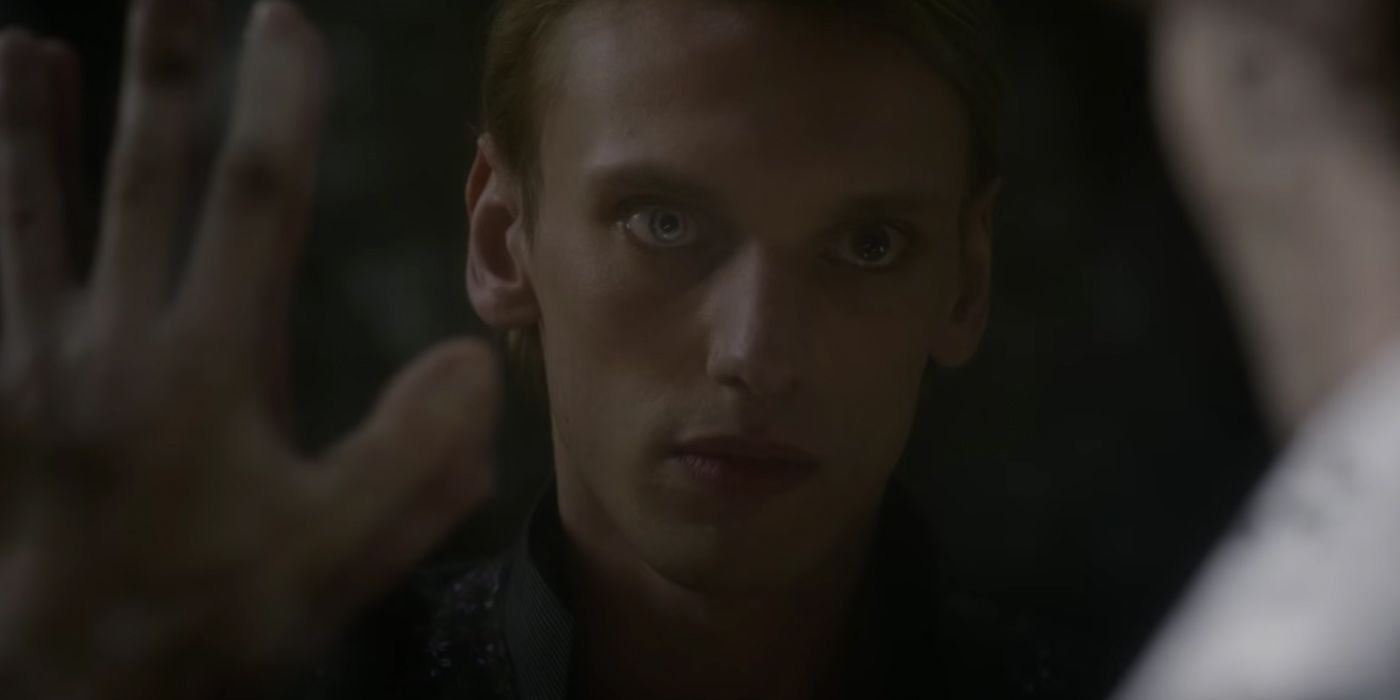
One of the most enchanting parts of Harry’s story is when Hagrid bursts through the door and says, “Yer a wizard, Harry.” The Boy Who Lived is thrust into a world full of possibilities and dangers, his life forever changed. Harry didn’t know the Wizarding World existed thanks to the International Statute of Wizarding Secrecy. The Statute was established in order to protect witches and wizards from Muggle witch-hunters.
However, not everyone was pleased at this move towards secrecy. A lot of pure-blood families opposed, and centuries later, Grindelwald and Dumbledore would try to overturn the Statute. Dumbledore's intentions were more benign than Grindwald’s. His sister Ariana was bullied by a group of Muggle boys, and Dumbledore lost his parents because of the trauma.
14 He Wanted An Army Of Inferni
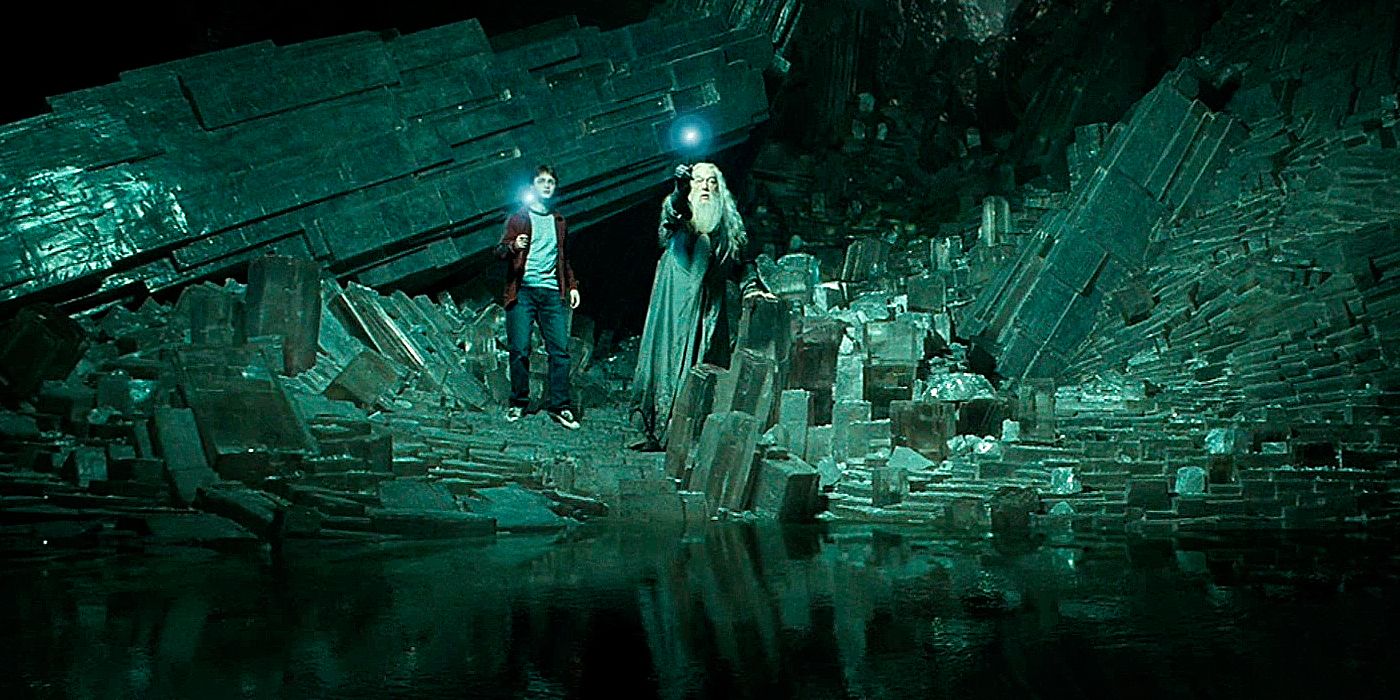
Dumbledore’s motivations for pursuing the Deathly Hallows were also different from Grindelwald’s. Young Dumbledore wanted to use the Resurrection Stone to revive his parents so he didn’t have to be Ariana’s caretaker at such a young age. Grindelwald, on the other hand, wanted to create an army of Inferi.
An Inferius is a deceased body under the control of a Dark Witch or Wizard using a branch of the Dark Arts. One of the best known uses of Inferi is in the cave in which Voldemort stored one of his Horcruxes. They’re a spine-chillingly effective defense because they can’t feel pain. They’re similar to zombies, but are separate creatures in the Wizarding World.
13 He Chose his slogan
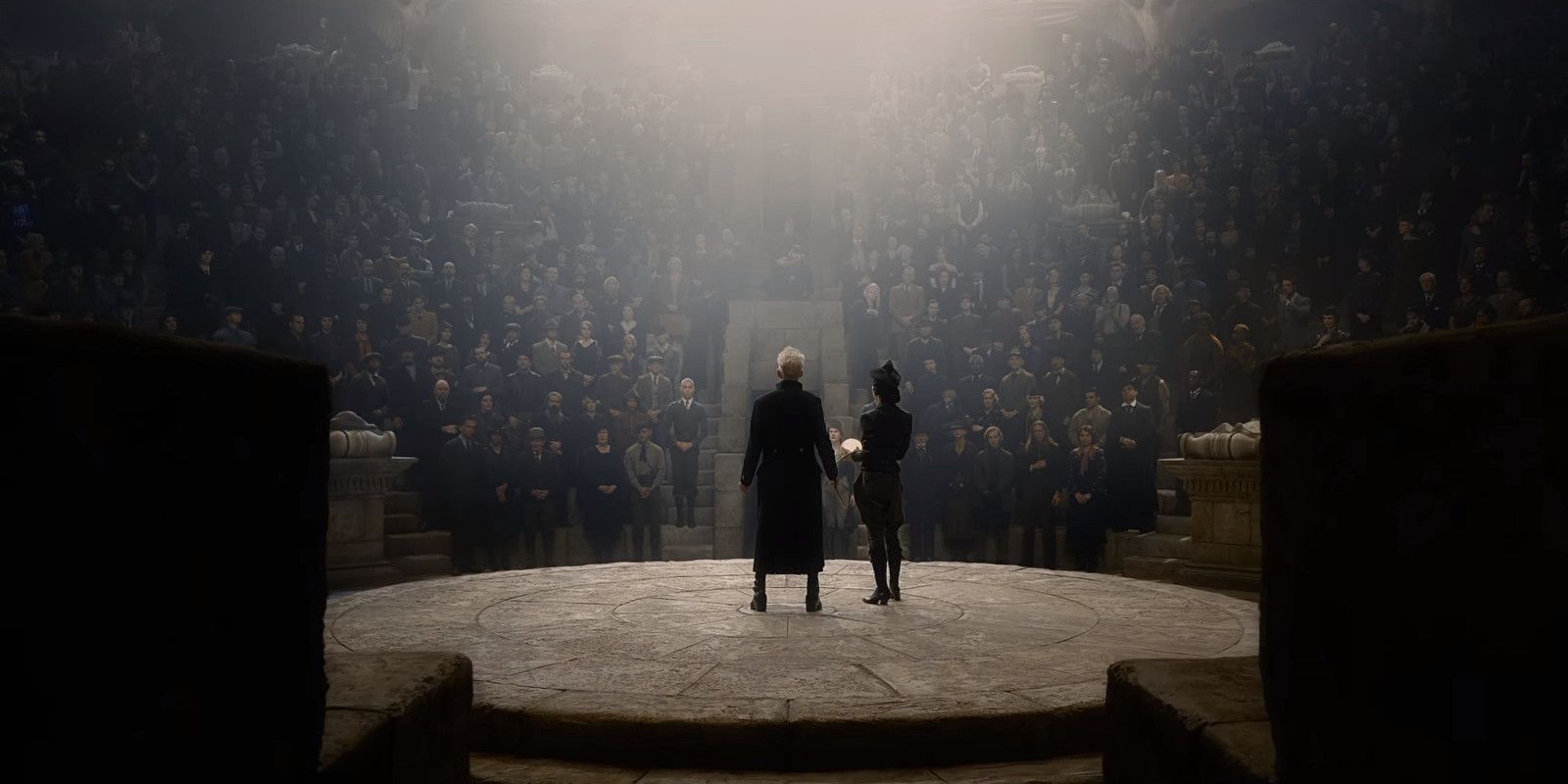
Slogans and propaganda are integral to any sort of campaign or movement, and Grindelwald’s attempt to assert dominance over Muggles is no exception. As Dumbledore recounts later in his life, he had his reservations and doubts about Grindelwald, but chose to dismiss them. He tried to convince himself that any damage they caused would be for the greater good. Little did Dumbledore know that he’d coined Grindelwald’s slogan.
“For the Greater Good” is especially scary as a rallying cry because Grindelwald truly believed that he was doing the right thing. His countless crimes could be justified because they were all for the "good" of the Wizarding World and his vision of a better future.
12 He Mastered Wandless And Nonverbal Magic
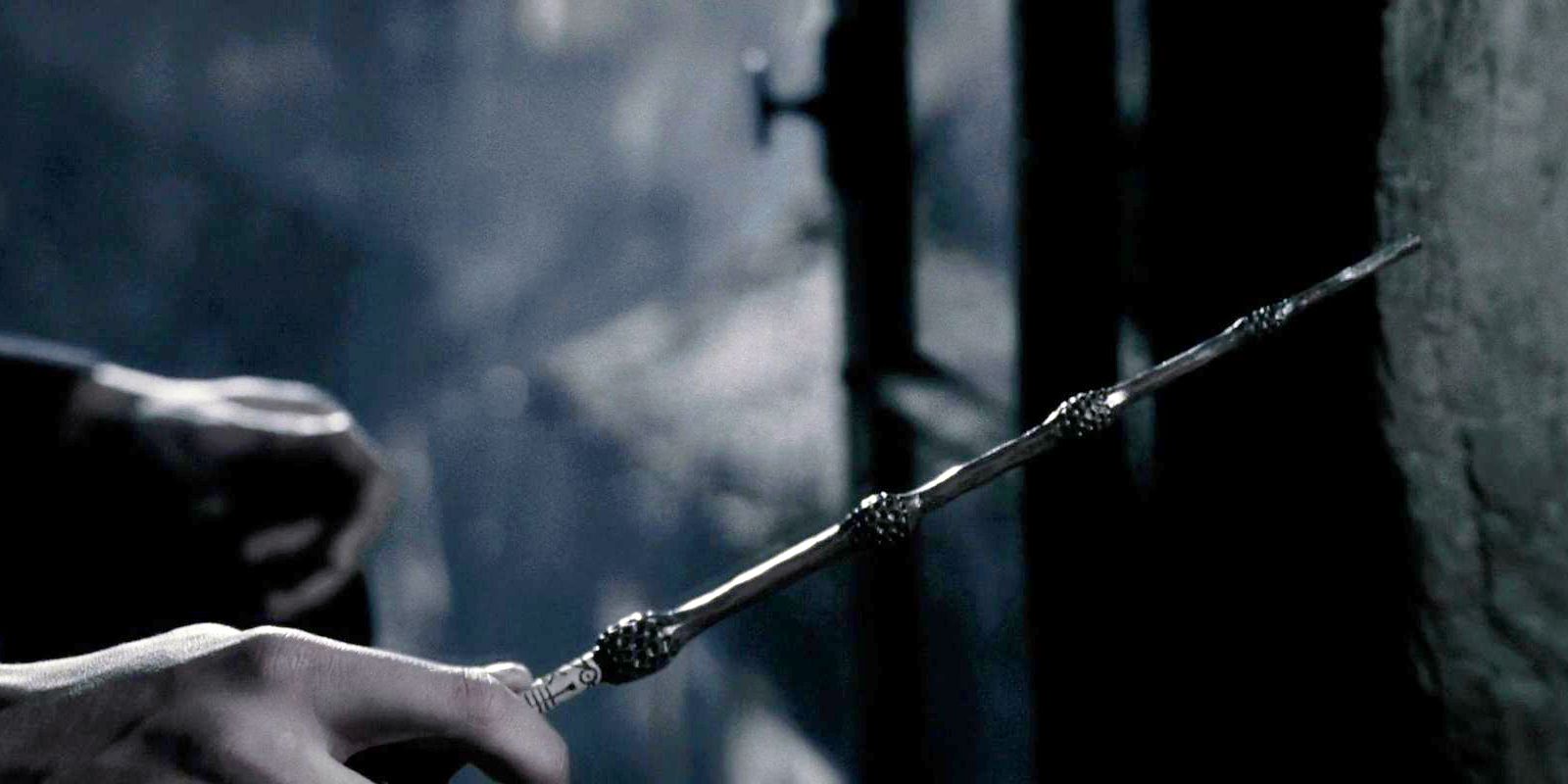
Wands are a major element of the Wizarding World. After all, who hasn’t dreamed of running off to Ollivanders after receiving their letter from Hogwarts? As iconic as wands are, it turns out they’re not essential to spell-casting in the Harry Potter universe. They’re used as a tool to channel one’s magical abilities for better control. Even the verbal incantations aren’t a must, even though it’s much more difficult to cast spells without the help of those magic words.
Graves uses wandless and nonverbal magic in Fantastic Beasts, which makes total sense since he’s such an accomplished wizard. But since it was Grindelwald undercover all along, that means the Dark Wizard had also mastered wandless and nonverbal magic.
11 He Used The Cruciatus Curse On Aberforth
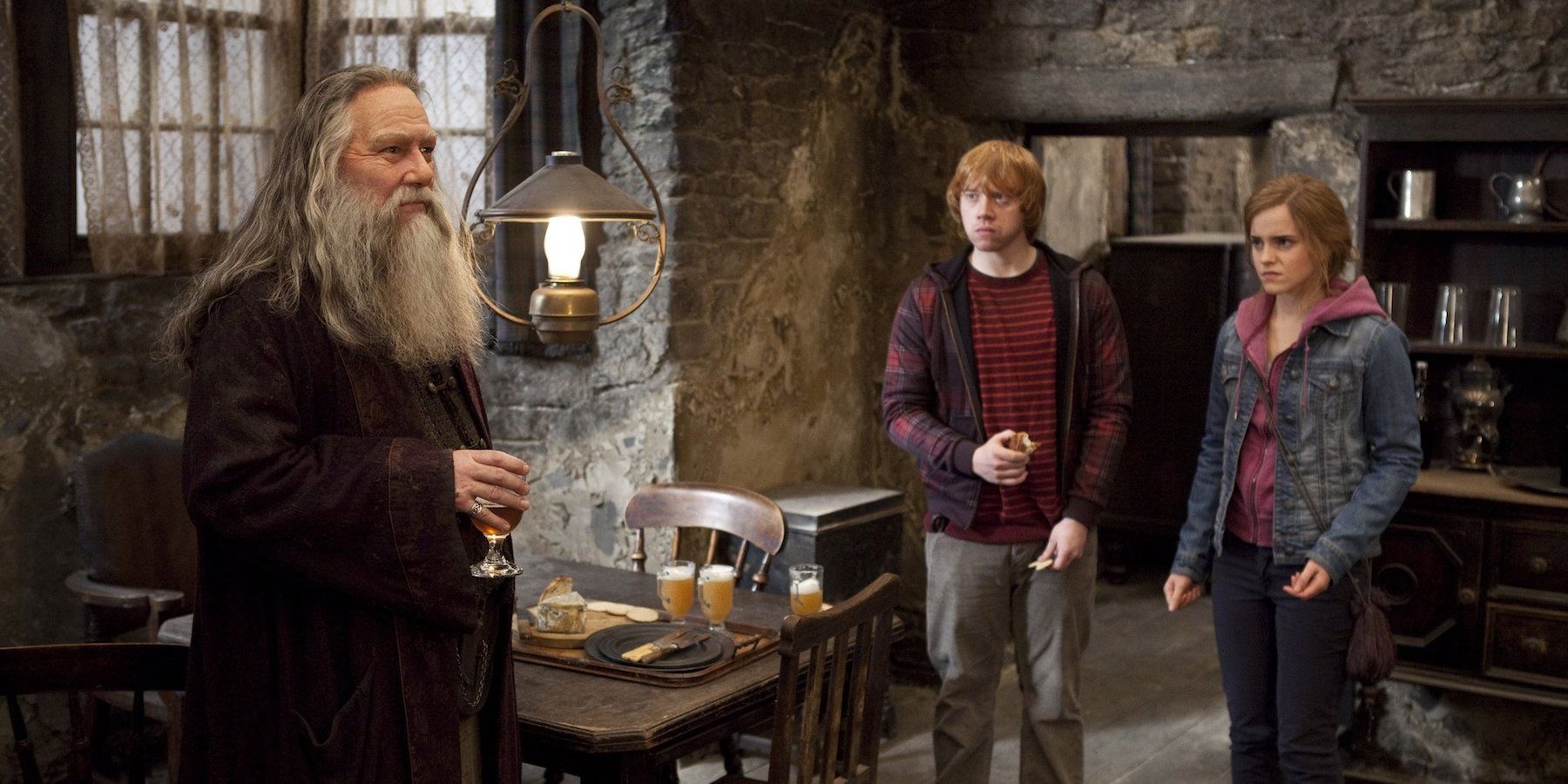
Albus and Grindelwald may have been thoroughly engrossed in their relationship, but not everyone was as content as they were. Aberforth Dumbledore became concerned with his brother Albus’s ambitions and Grindelwald’s influence on him. Since Albus and Grindelwald intended to travel the world to find the Deathly Hallows, they would’ve had to bring Aberforth and Ariana along to keep her stable.
Grindelwald eventually used the Cruciatus Curse on Aberforth, enraged by his objections. By then, the Cruciatus, Imperius, and Avada Kedavra Curses had already been made unforgivable, and carried a life sentence at Azkaban. The penalty didn’t stop Grindelwald from displaying such cruelty against Albus' brother. As Bellatrix Lestrange reveals later on, the spell-caster has to genuinely want to hurt their victim in order for the curse to work.
10 He Fought Both Albus And Aberforth
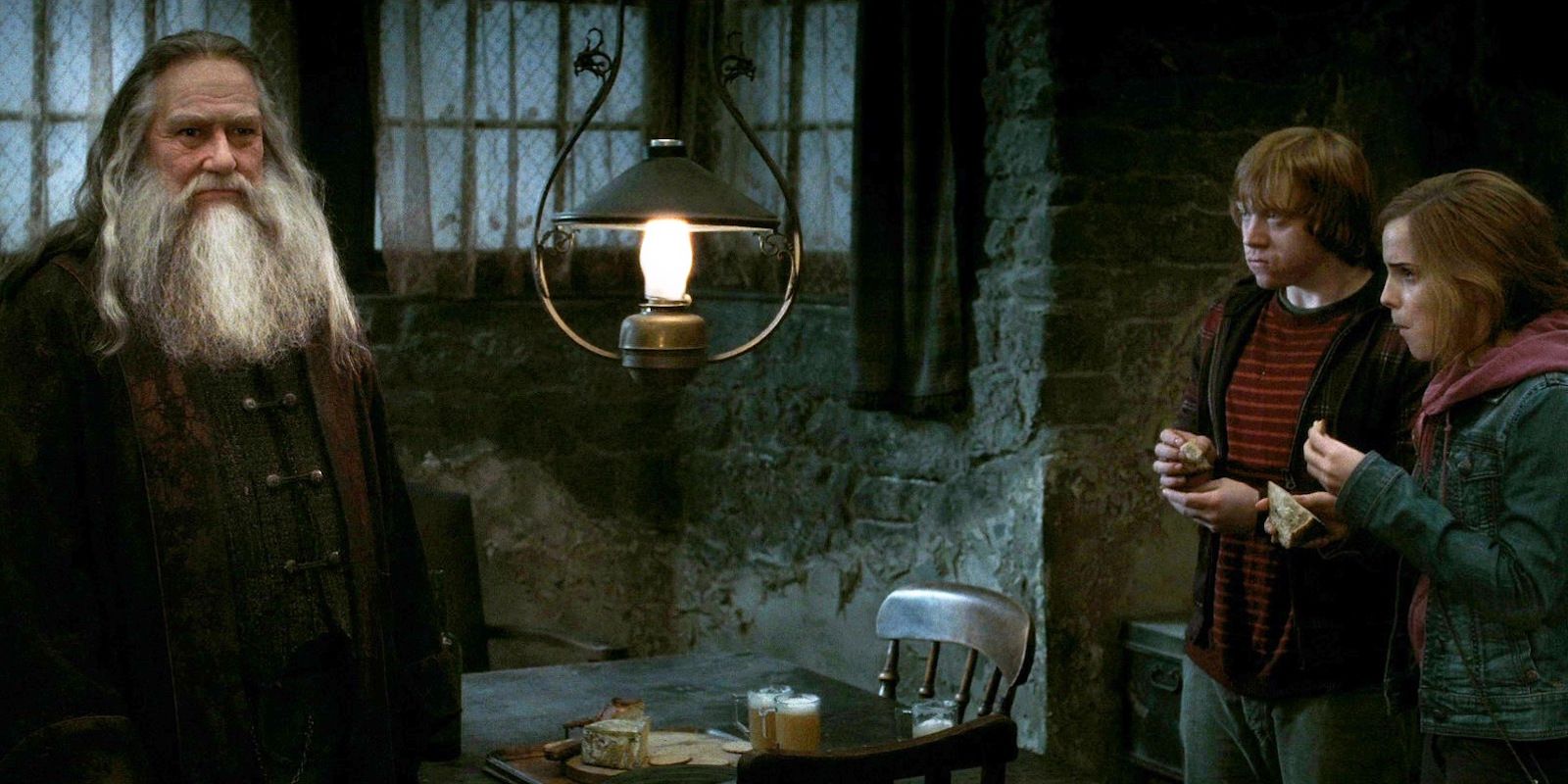
Grindelwald has proven his duelling prowess as both himself and undercover as Graves, fending off several powerful Aurors all at once. It definitely helps that Durmstrang has a strong focus on duelling and martial magic. Even though he was kicked out of school, Grindelwald proved to be a powerful duelist at a young age.
Albus jumped in to defend his brother when Grindelwald used the Crutiatus Curse on Aberforth, thus starting off a three-way duel. All three of them held their own and survived the fight, but Ariana was hit by a spell and ended up passing away. It isn’t clear how Ariana exactly passed and who was responsible for the specific spell.
9 He Escaped From Great Britain
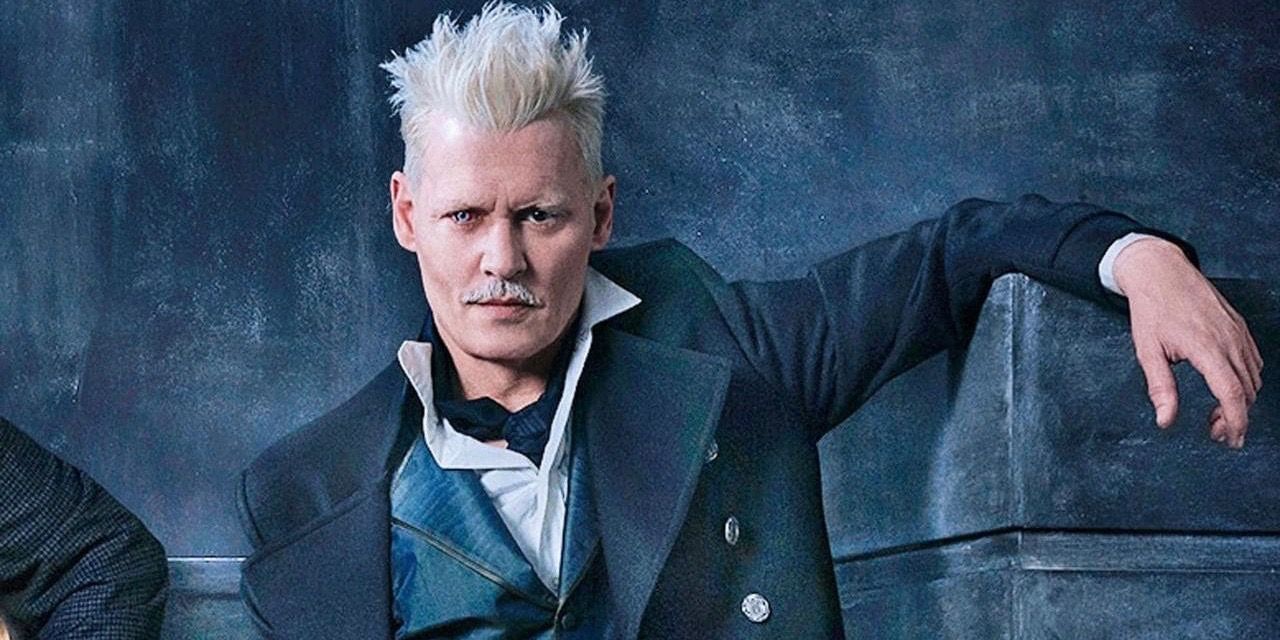
After that unfortunate duel between Grindelwald, Albus, and Aberforth, Grindelwald escaped from the country. On top of that, it was assumed that he was responsible for Ariana’s passing even though the real culprit wasn’t determined because of the chaos. Regardless of whether or not he did it, fleeing the country made him seem suspect, and ultimately solidified his reputation as a Dark Wizard and established his position on the other side of the law.
It’s unclear why he left in the first place and how he was able to escape without getting caught. We also don’t know if he sustained any injuries from the duel. Considering his magical prowess, however, it’s not surprising that he could run off unscathed.
8 He Uncovered Secrets About The Elder Wand
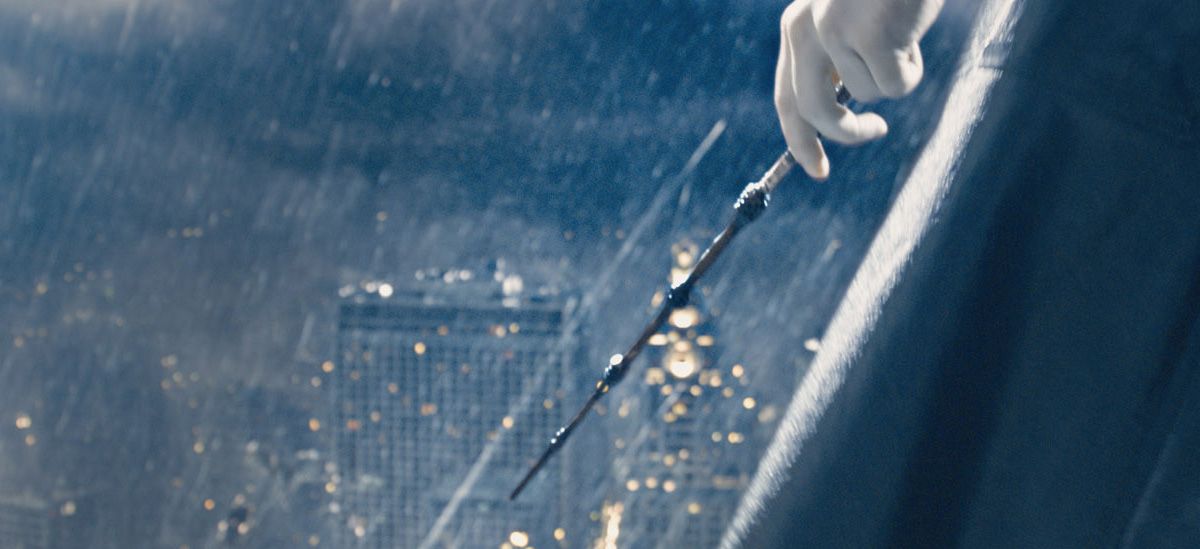
Apart from being a Dark Wizard who wreaked havoc on the Wizarding World, Grindelwald is perhaps best known as an owner of the legendary Elder Wand. According to folklore, the Elder Wand was the most powerful of all, and could enhance the wielder’s skills beyond imagination. However, efforts to gain control over the wand resulted in many casualties because it was widely believed that one must end the life of the owner in order to possess the wand.
Thanks to his extensive research, Grindewald realized that he didn’t need to take anyone’s life to become the wand’s new owner. This discovery made it easier for him to take control of the Elder Wand— he planned to simply steal it.
7 He Stole The Elder Wand From Gregorovitch
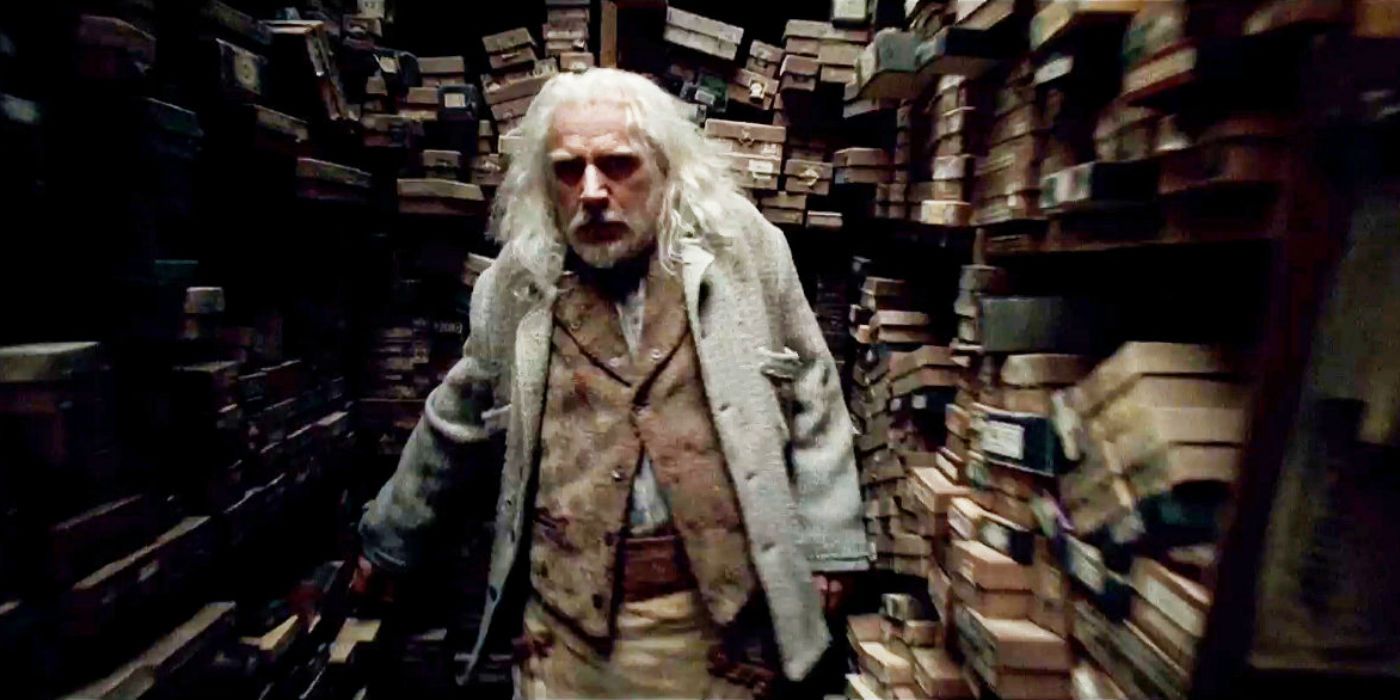
Ollivander may be the most famous wandmaker among Potterheads, but he’s far from the only one. Mykew Gregorovitch was a wandmaker whose products were also sold in London to compete with Ollivander’s goods. At one point, he became the master of the Elder Wand and began experiments on it in order to enhance his own wandmaking skills. In order to boost his business, he also started a rumor about his possession of a powerful wand.
As a result, Grindelwald tracked down Gregorovitch and broke into his workshop in the middle of the night. Gregorovitch caught a glimpse of Grindelwald, who he described as a young man. However, Grindelwald hit him with a Stunning Spell, thus securing his ownership of the Elder Wand.
6 He Gained Followers All Over Europe
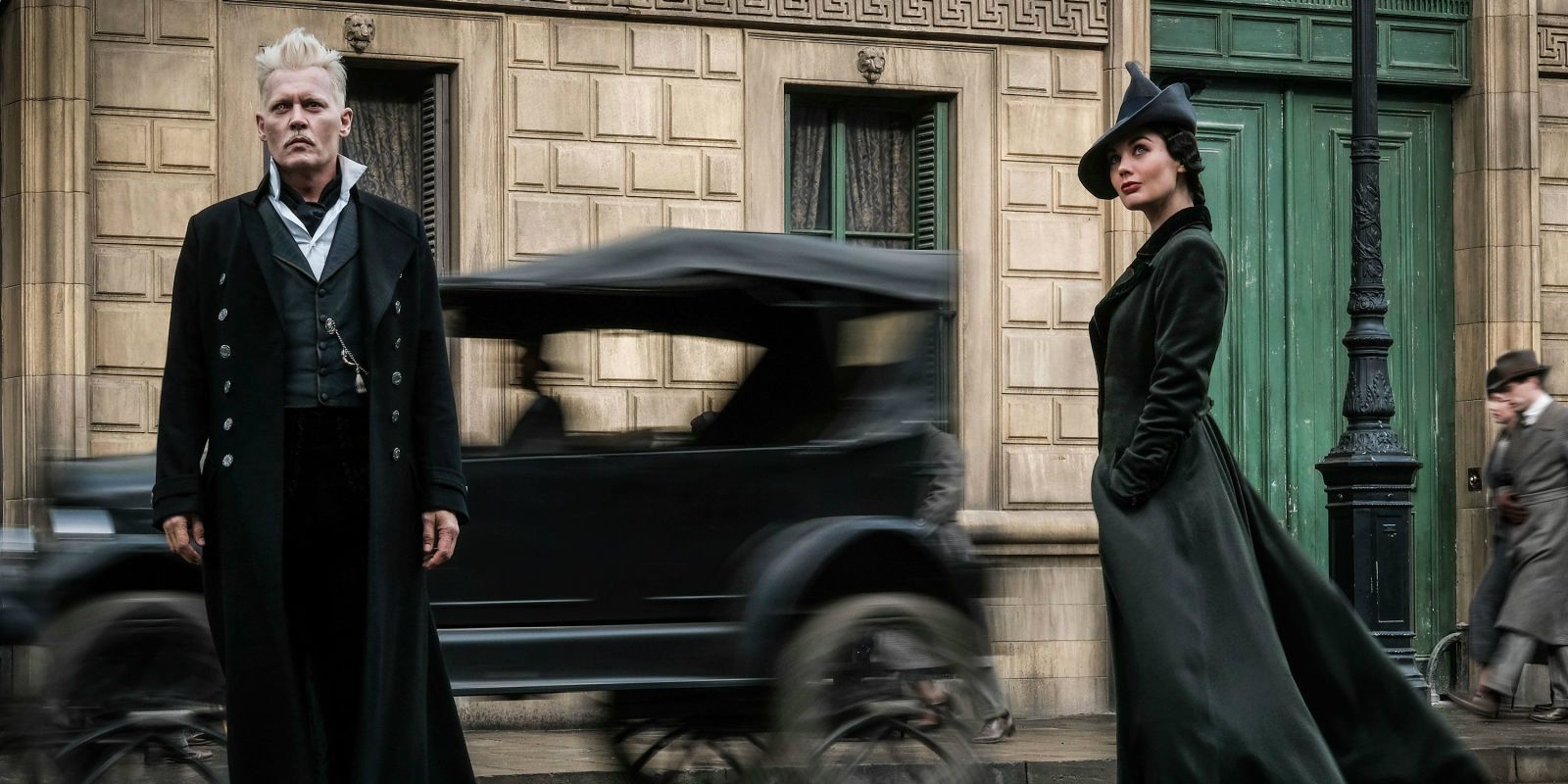
Grindelwald fled from Great Britain after the three-way duel that resulted in Ariana’s passing, but his determination never wavered and he didn’t stop his evil deeds. If anything, he actually made a lot of progress towards his wizard-dominated vision for the future.
He traveled across continental Europe and amassed enough followers to form an army. These followers were fanatically committed to Grindelwald and his ideas, willing to even start a war against Muggles in order to force them into servitude. That said, some of his followers didn’t necessarily believe in his words, and instead joined him because of his charisma. This order of fanatics is eerily reminiscent of Voldemort’s legion of Death Eaters, who would wreak havoc a few decades later.
5 He Spread Fear By Taking Countless Lives
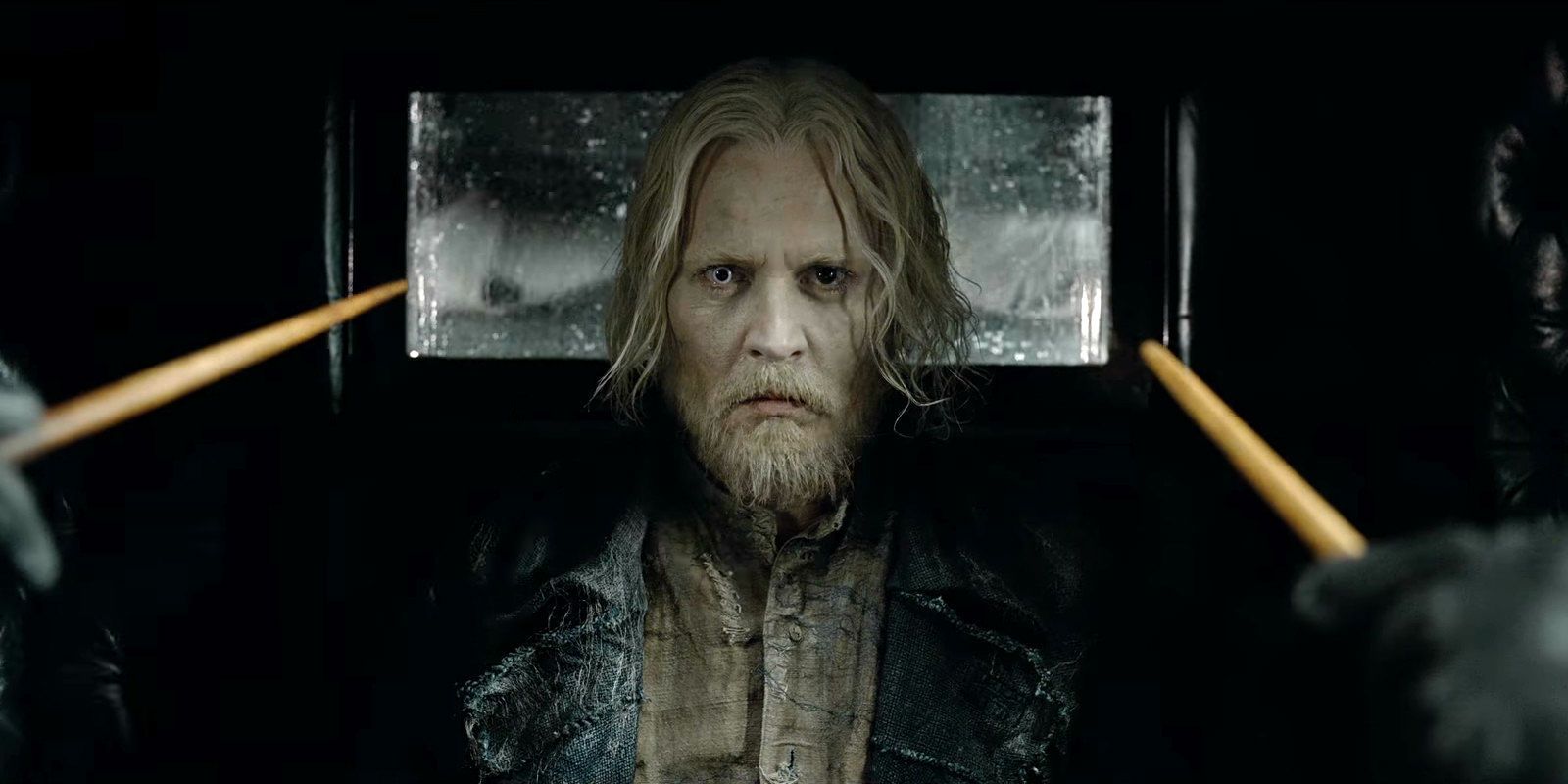
By the time the events of Fantastic Beasts happen, Grindelwald had already established his reputation as a ruthless Dark Wizard. He’d spread fear all over the world, ending countless lives in order to realize his dream of a wizard-dominated society with subservient Muggles at the bottom of the social ladder. His heartless attacks on the masses also garnered attention from the Muggle world, putting the secrecy of the Wizarding World at risk and fanning the flames of a potential war. A worldwide hunt for him ensued as a result.
In fact, Grindelwald ends up capitalizing on his own infamy. During his disguise as Graves in the first movie, he accuses Newt of working with Grindelwald to unleash chaos upon the world.
4 He Built Nurmengard To Imprison His Enemies
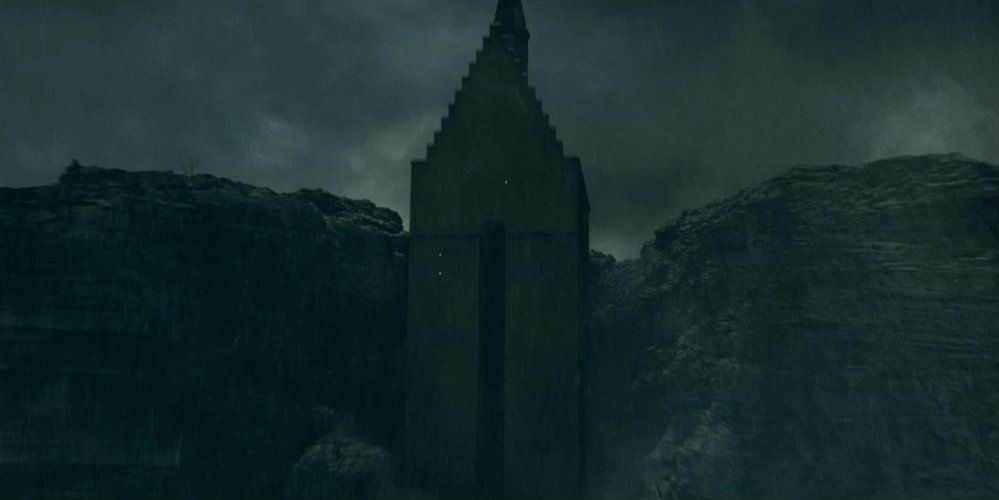
The last time anyone hears of Grindelwald, he’s imprisoned in the highest cell in the highest tower of the wizarding prison Nurmengard, where his life is ended by Voldemort. It’s truly an ironic twist of fate. Nurmengard was originally built by Grindelwald himself to hold his enemies as he sought to conquer the wizarding world. He even had his slogan “For the Greater Good” engraved over the entrance to the prison.
Grindelwald ultimately landed himself there after Dumbledore defeated him, and spent the last days of his life in a cell with a tiny window, a hard bed, thin blanket, and the taste of his own medicine in his mouth. It’s unclear what’s become of the prison.
3 He Avoided Dumbledore but still tormented him
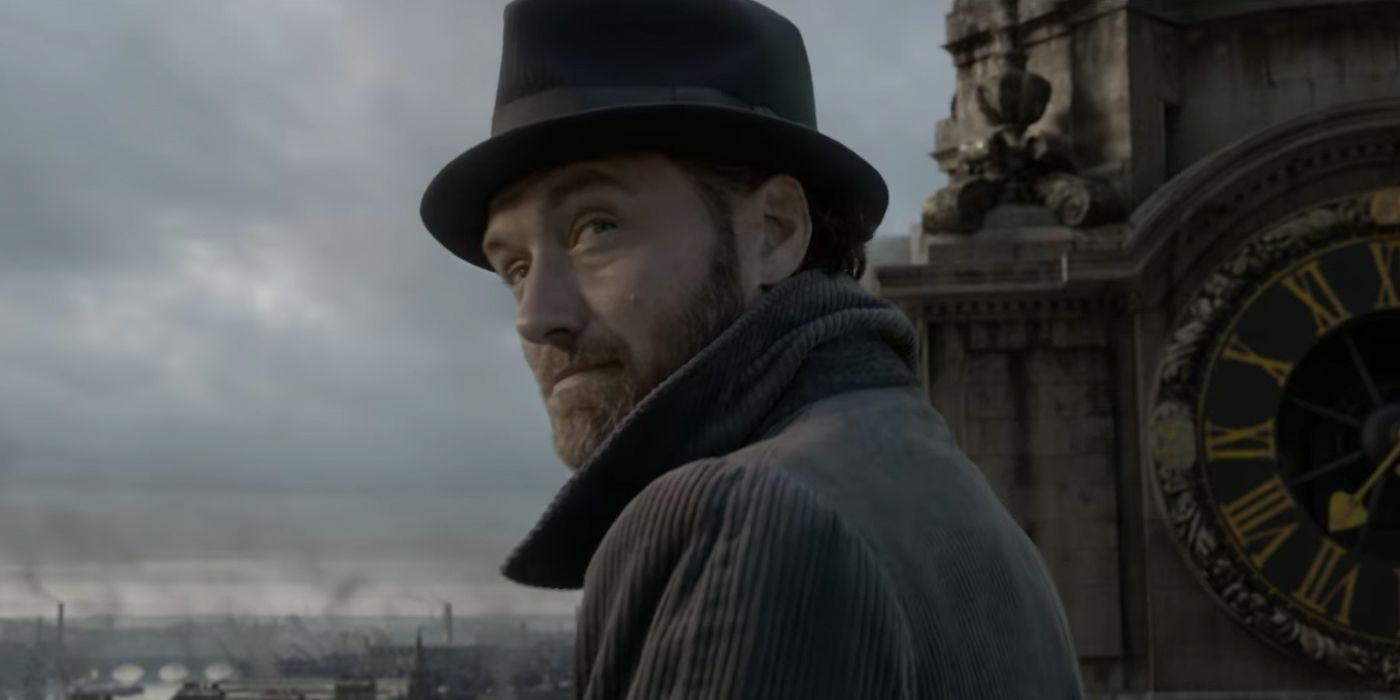
Grindelwald and Dumbledore became fast friends ever since Dumbledore returned to his family home in Godric’s Hollow after graduating from Hogwarts. The two were inseparable, trying to unravel the secrets to immortality via the Deathly Hallows. That said, their friendship quickly turned sour, and with good reason.
Grindelwald’s Pottermore page suggests that he might’ve been hiding out of fear, but by avoiding Britain, perhaps he inadvertently increased Dumbledore’s concern and paranoia. Dumbledore was worried that Grindelwald knew exactly who was responsible for the curse that ended Arian’s life, and was afraid of confronting him. In the end, it took a lot of pain for Albus to track down his former friend and defeat him in a duel.
2 He Was Second Only To Voldemort
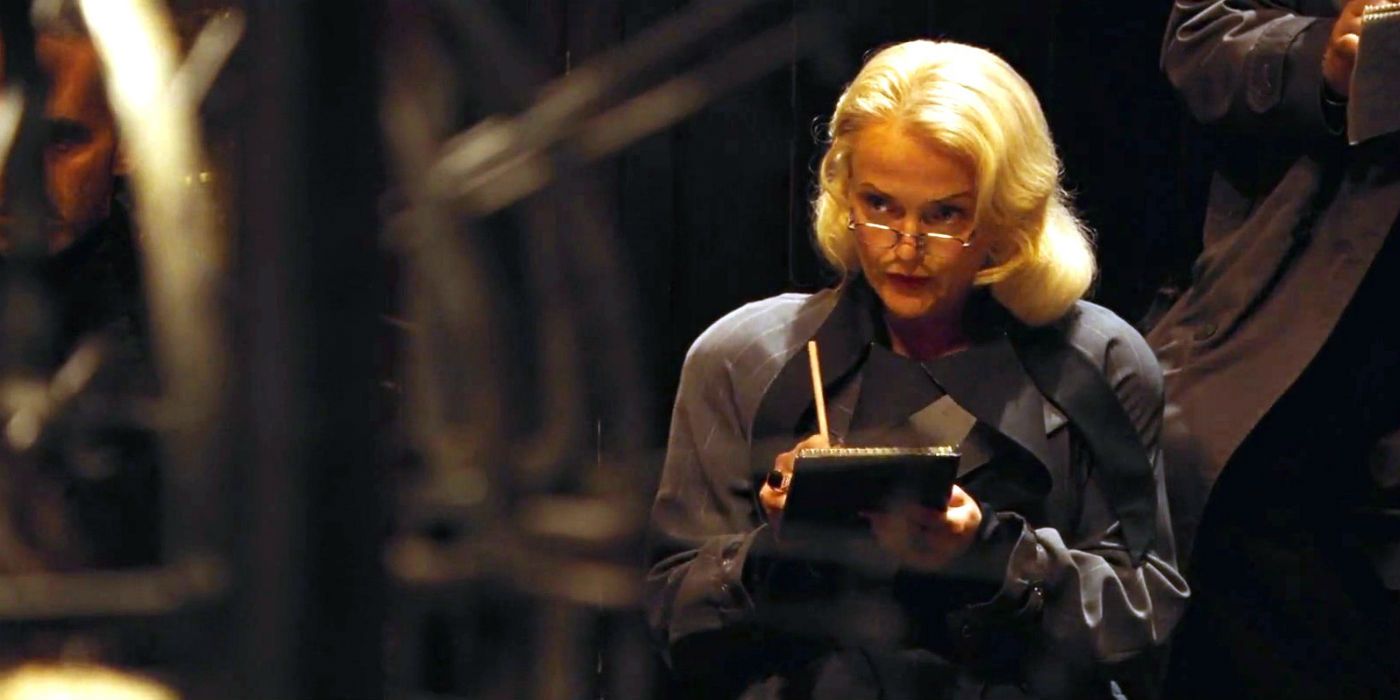
We have to admit that Rita Skeeter isn’t the most reliable source for wizarding news. The writer routinely twists the facts in order to present sensationalized headlines and content, establishing her reputation as a poison-pen writer. She’s so toxic and insufferable that Hermione kept her in a jar while she was in her Animagus form as a beetle for a whole year.
Skeeter wrote in The Life and Lies of Albus Dumbledore that Grindelwald would have been considered the most powerful Dark Wizard ever known if Lord Voldemort hadn’t come bursting onto the scene a few decades later. Skeeter has a tendency to exaggerate, but her books sell very well, and her work has further bolstered Grindelwald’s notoriety.
1 He Overpowered Percival Graves
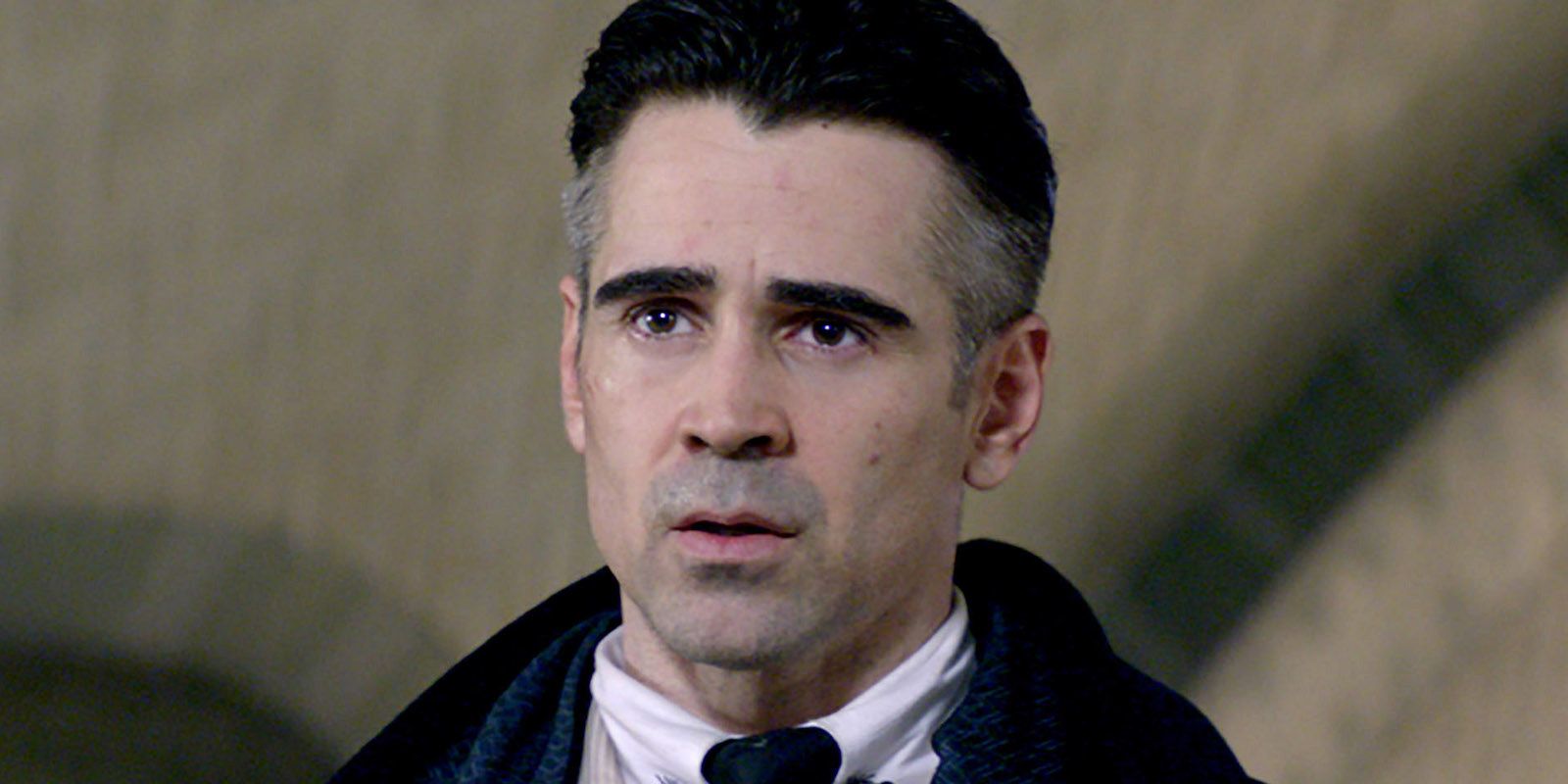
Aurors are an integral part of magical law enforcement, so of course they’re highly accomplished in spells for all sorts of hostile situations. Percival Graves was not only an Auror, but also Director of Magical Security and head of MACUSA’s Department of Magical Law Enforcement. That’s a super impressive resume, and Grindelwald took advantage of Graves’s stellar reputation when he took over the Auror’s identity to infiltrate MACUSA.
However, in order for Grindelwald to pose as Graves, Grindelwald must have defeated him prior to the events of Fantastic Beasts. Nobody raises any concerns about the skills Grindelwald shows while undercover, so Graves was clearly accomplished in his own right yet still couldn’t hold his own against the Dark Wizard.
---
What are some other wicked things Grindelwald did before Fantastic Beasts? Tell us in the comments below!
from ScreenRant - Feed https://ift.tt/2FrJkPP





No comments: